AudioCulture
The noisy library of New Zealand music
Te pātaka korihi o ngā puoro o Aotearoa
Michael J Hex
aka Michael J Brasell
By the time he released his fourth album, 66, in 2002, he was at the height of his powers, and creating music that was like a spiritual descendant of Snapper and The Clean. It was a great shock to all who knew him when he died suddenly in Dunedin in early 2004. The appraisal of his work went from initial critical acclaim in New Zealand to appreciative audiences in Europe and the USA from the late 1990s to the present day.
Michael John Brasell was born in Christchurch on 3 May 1966. His fondness for music was evident early on and in his teenage years he witnessed the flowering of Flying Nun in the flourishing NZ music scene of the early to mid 1980s. The influence of that era on him was palpable and he was particularly inspired by the work of the Kilgour and Jefferies brothers. He went to live in Sydney in 1986 but felt the music scene there lacked the “something special” going on in New Zealand. He returned to Christchurch in mid 1988, moved into a flat in Sumner, and focused on playing the guitar and writing songs. Later that year he made his debut public performance at the Subway, and eventually obtained a 4-track cassette recorder.
Brasell met Brett Lupton in 1991 when Lupton joined Brasell’s band Action Drillhead as a drummer. The two became friends and started writing music together, they quit Action Drillhead and formed Squirm. The band was completed with the addition of drummer Andrew “Hat” Meier and they began playing live. By 1992 the band had recorded ‘Voodoo’, a concise and lilting pop tune that got radio play on RDU and was also released on Rob Mayes’s Failsafe label compilation Good Things.
Many places in New Zealand in the 1990s had cultures of heavy drinking and drug use, and Christchurch was no exception. The city’s music scene had some people dabbling in opiates but Brasell fell into them more deeply. Changes though were afoot for him when he met Hannah Trusttum, whom he married in 1994. Hannah recalls of the time, “He was looking to be shot of that lifestyle, and the music helped pull him out of it.”
Squirm went on to play shows with bands like Head Like A Hole and Loves Ugly Children and by the end of 1994, with new drummer Daryl Kirk, the band had released the six track Whip Me Honey EP and the album Mastermistakemaker, both on Failsafe Records. Squirm received good press from different quarters but the band changed again when in late 1995 Kirk was left the band and Peter Mitchell joined on drums.
In 1996 Brasell co-founded Noseflute, an independent collective label for Christchurch artists.
In 1996 Brasell co-founded Noseflute, an independent collective label for Christchurch artists. The same year the label released the second Squirm album Spastic Sarcastic. Not long after the first Michael J. Hex solo album Johnny Horse was also released on CD through Noseflute. Its no-frills cover reflected the 4-track recorded content perfectly and also set a visual template of sorts for Brasell’s effective and minimal black and white artwork reproduced on a photocopier. Its depiction of a half-smiling cartoon horse standing astride a strange vortex lent a dark humour to the proceedings.
The influential English zine Robots and Electronic Brains rated it as excellent writing: “Mr Hex favours the scratchy fragmented demo qualities of, say, Portastatic, with his understated tunes struggling through magnetic tape residue … it’s Pavement on a greased roundabout.” Matt Hayes in Spec magazine mentioned the “dreamy beauty” in the songs. Writing in Rip It Up, Mac Hodge noted a similarity in feel to Syd Barrett, Chris Heazlewood, Spacemen 3 and Plagal Grind alongside the insightful observation, “as the album rolled on I came to conclude the Hex is many things, including a Great Unwashed in Residents clothes, yet still more of that.”
In 1998 the second Michael J. Hex album The Hiss Explosion was released. Like Johnny Horse it received good reviews and perplexed and delighted people in equal measure. Didier Becu, the editor of the Belgian zine The Original Sin, was of the opinion that the record held the spirit of the early Velvet Underground, and had a similarity of aesthetic to Durutti Column, and the Azusa Plane. Robots and Electronic Brains felt that the album had more cohesion than Johnny Horse, describing it as “a slower, more contemplative set [of songs], introspective but still experimental. ‘Drone’ and ‘Loop’ are self descriptive bumbling, muddy flashes of brilliance.”
By the late 1990s the energy within Squirm was beginning to wind down. Brasell started doing more solo shows and on one occasion played on the same bill with Fishhead at the Kings Arms in Auckland. Darius Harris of Fishhead recalls: “It was incredible, he was doing his thing with his loops and tapes. It was just beautiful, like a slow tide that would come out at you.”
In 1999 Michael and Hannah moved to Dunedin with Brasell desiring a change of scenery, but also inspired by the scene in Dunedin. He continued his impetus in writing and recording and began to get work doing sound and other jobs at the Arc Café on High Street. In late 1999 another Michael J. Hex album emerged, the languid and mysterious Are You Hexperienced. Among its 18 tracks are the charming ‘Made of Stone’, the Suicide-like ‘Govt Gone Bad’, and the black humoured albeit chilling ‘All Tied Up Now’.
In 2002 Mitchell moved to Dunedin to be closer to Brasell. They played a lot of live shows experimenting with different formats. Not long after the Hiss Explosion released the nine-track Mingus EP on Noseflute, named after Mingus, Brasell’s black Labrador. By now Brasell’s intuitive grasp of loop construction using both found sounds as well as conventional instruments, was at points becoming an exercise in musique concrete. The rhythms for some pieces were sometimes entirely constructed by the shape of the loops, either in more conventional time signatures or otherwise. This kind of aesthetic was explored even further on the minimal and brooding album Engine, which he released as a solo album in 2002. The last track on it, ‘#8’ – in terms of sheer strangeness and otherworldliness – equals any Residents, Chrome, or This Heat piece.
Watching Brasell play solo could be an intense and compelling experience.
In March 2002 Brasell and I released an album called Sentient Seas under the moniker of Canhex. After being turned onto his work by mutual friends, we started the collaboration in 1999 when I was based in Northern England. We sent each other 4-track cassette tapes through the mail, which I mixed and mastered. First with the late sound engineer Paul Turner, and later on with engineer and keyboardist James Bacon who would co-write some of the pieces. A few months after the album’s release I received a phonecall from Mute Records A&R, who had heard the tune ‘Spookhouse’ off it and wanted to talk turkey. In the end though, a deal was never made and Mute signed another band.
Watching Brasell play solo could be an intense and compelling experience. Alastair Galbraith, who once witnessed one of Brasell’s solo shows at Arc, commented: “The experience was pretty cool – the set was like a freight train. Once it started it just kept gaining momentum. He played with hardly any breaks. One thing just morphed into another. Sometimes he was adding so many cool loops and things that it became quite orchestral.”
In 2002, with the birth of his son William, Michael’s world changed, as he became a father while juggling his job at Arc Café and creating his music. Arc had branched out from being a café and performance space into a recording and production entity called Arclife, which was on the top floor of the same building. In the spring of 2002 the next Hiss Explosion album, 66, was released. Recorded on multi-track at Arclife in 2001, the album is a wonderful psychedelic adventure with grooving snake hipped loops, percussion, Brasell’s trademark rhythm guitar and lead lines replete with drones and tortured wah pedal, subtle vocals, Casiotone, and hypnotic drumming.
Mitchell recalled of the album: “Having so many channels meant he thought he needed to fill them all with guitar etc. So when it came to mix down there was no room for the drums. I poked my head in while he was mixing and said ‘Hey man I can still hear the drums’.” Despite the valid criticism of the drums being too low in the mixing 66 is one of the finest New Zealand album releases of 2002. It is also one of Brasell’s finest records, an artistic triumph invoking itself as a spiritual heir to The Clean and Snapper, featuring the wonderful ‘Creeping Shadows’ and the rocket propelled ‘Roundabout’.
During 2003, while things were going well artistically for Michael, he and Hannah were finding home life difficult at times with all the stresses and strains that a young baby brings for a couple and being away from family in Christchurch. In the time that he did get aside from parenting, doing sound at night, and working at Arclife during the day, Brasell would jam with other people including a band called Ogatogordo (“fatcat” in Spanish) with Rob Lamb and Todd Knudson.
On 5 February 2004, Brasell and Mitchell drove up to Christchurch for a Waitangi weekend show. The gig was a success and Brasell was pleased. Hannah Trusttum: “He loved that gig, and got a real buzz from it but something had shifted, he wasn’t happy. I think he was exhausted.” As February went by Michael began to feel unwell. After visiting a doctor he was advised that he had the flu and should rest.
By 26 February his condition had deteriorated and he was taken to Dunedin hospital, short of breath, and needing help to walk to a car. He was admitted to the hospital and was duly diagnosed with pneumonia. Hannah was at home with William and took the phone call from the hospital to hear this news and she heard Michael in the background say, “don’t tell her, she’ll only worry!” Tragically, later that evening he suffered a massive heart attack. The hospital medical staff couldn’t revive him and he died. He was only 37 when he passed away.
After Brasell’s death it emerged that he had suffered hepatitis C and may have had an underlying health issue. Peter Mitchell: “I hope I’m not romanticising it, but I think he might have known he wasn’t well. There’s a bunch of stuff that unearthed after he’d passed”. Brasell had been on a reducing dosage of methadone when he died and Mitchell believes he would have eventually been free of it had he lived longer.
Brasell’s passing left a large hole in the lives of family and friends. He was a popular and respected figure in the music scenes of Dunedin and Christchurch, and at his funeral in Christchurch the church service was packed to overflowing with 150 people seated with another 80 standing outside. Hannah: “The thing is that things were turning around, everyone was in his corner, and then he got sick. People really liked him. He was a lovely man, a good hearted fellow, one of the kindest people I’ve ever met, and I think that came across despite his troubled past.”
Daryl Kirk: “For me, Mike was like a big brother. He quietly encouraged me when I was in doubt, and his mana and strength gave me confidence, but I think his genuine kindness is what has stuck with me through the years.” Rob Mayes, noting Brasell’s “honest nature and artistic diligence,” added “he was a really kind hearted honest guy, who loved his music and went out of his way to be decent to people.” Brett Lupton commented, “I'll be forever be thankful to Mike for what he added to my life, with his friendship really, and his music to me is just emblematic to everything it was to have the guy around.”
Peter Mitchell: “I still love the guy – he was [though] definitely like the rest of us, he had his flaws. Being in a band with him was hilarious. He’d always set it up so the drums were in the background. So I’d be talking to someone after a show and they’d go ‘who do you play drums with?’ And I’d say ‘well I was actually just up there playing now’. Mike was always in the lights and fair enough, they were his songs. He was quite a politician. He was also really funny, a great mimic of a lot of the characters he met he just imitated them so well, with hilarious stories.”
His music was soulful and affecting, and one of the alluring things about it was the simplicity and directness within.
Brasell’s body of work holds many different feels within it across both the songs and instrumental pieces. Some are not an easy listen, not necessarily because of constrained recording resources, but because of the sheer intensity of their content and feel. Some pieces could be both dark and beautiful simultaneously. His lyrics at times were highly personal – at other times veiled in abstraction. Some of his pieces were short vignettes on the human condition, or wrestles he was undertaking with his own shadow and those of other people’s. Other times he’d be exploring basic human feelings and experiences, such as in ‘She’s Not Real’, where he expresses joy and relief in the line “it’s true love I feel”. The beautiful ‘Feelings Okay’ from the Hiss Explosion album with its simple refrain of ‘feelings okay’ possibly being an affirmation that allowing oneself to feel things – good and bad – is permissible.
His music was soulful and affecting, and one of the alluring things about it was the simplicity and directness within. He never wasted words. His sense of percussion in particular was beguiling and powerful and at times would move away from 4/4 constraints. He’d be somewhere else: maybe more aligned with the music of South or Central Asia.
Michael Brasell was an uncompromising and important artist of his time. Before he died he had developed a strong stylistic vocabulary and it is a tragedy that its expression was cut short. His work continues to garner critical praise internationally with a 2016 review of Johnny Horse published in England stating “skuzzed up, lo-fi avant-rock – this is veritably enigmatic and thoroughly wayward,” before comparing his music to Sebadoh, Pavement, and Swell Maps.
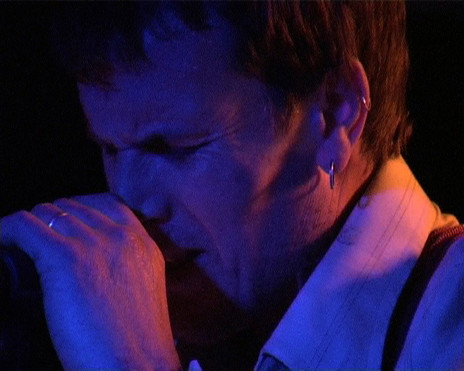
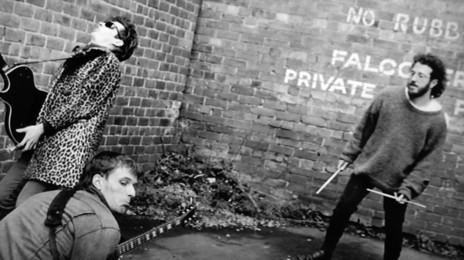
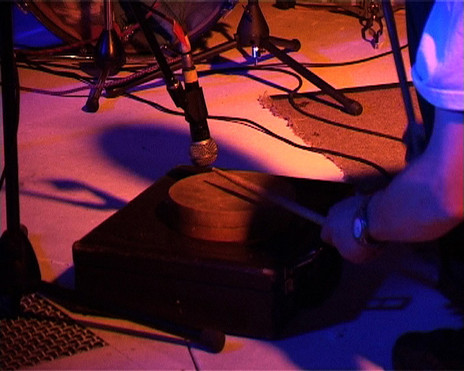
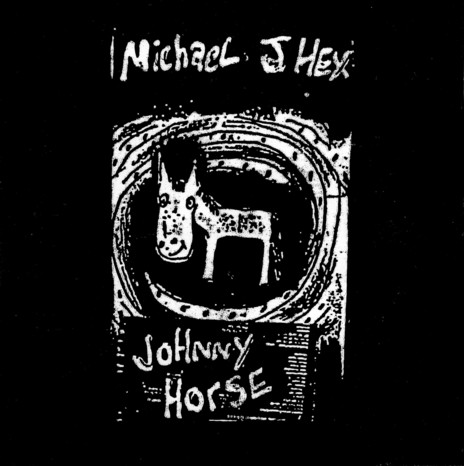
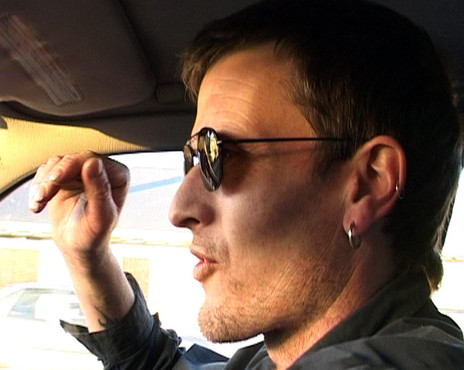
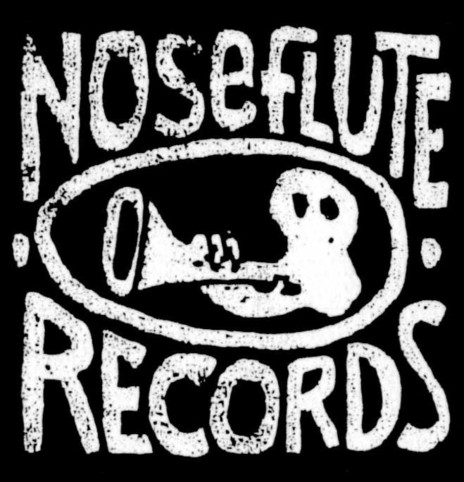
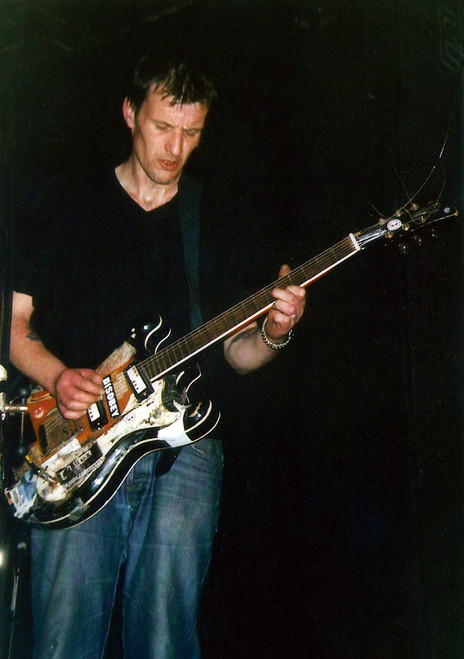
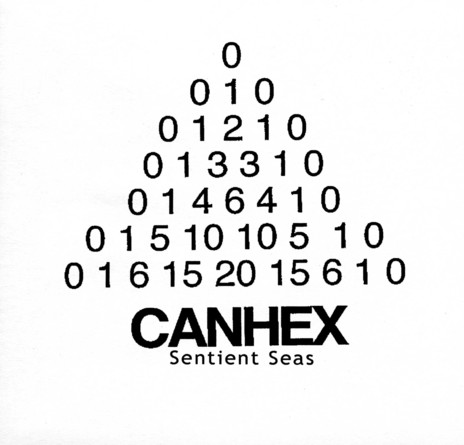
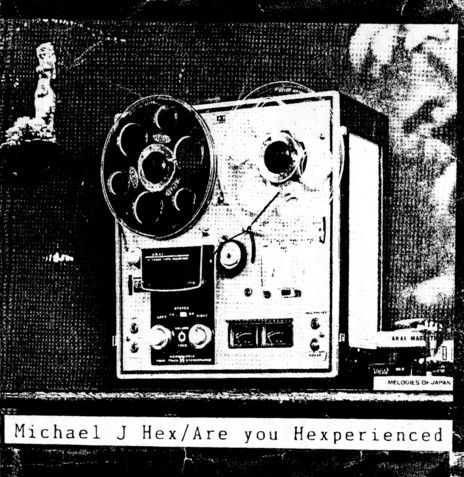
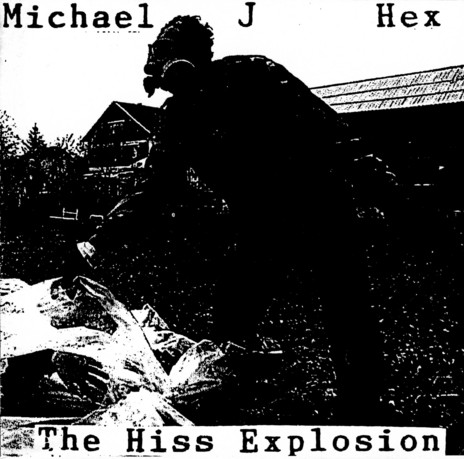
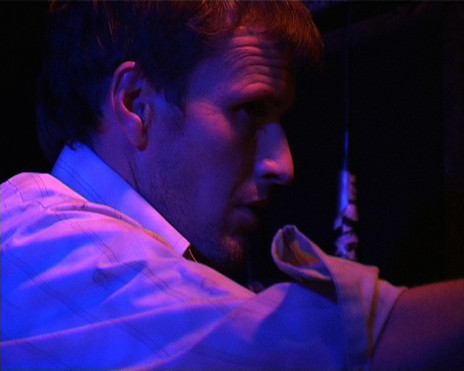
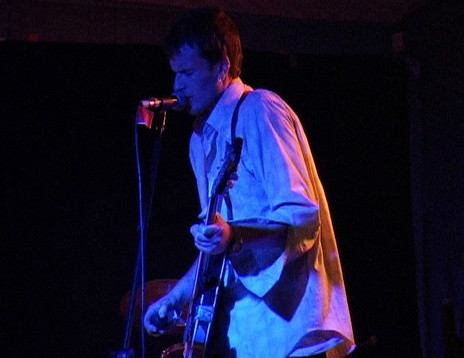
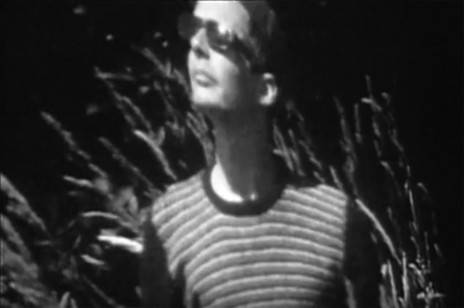
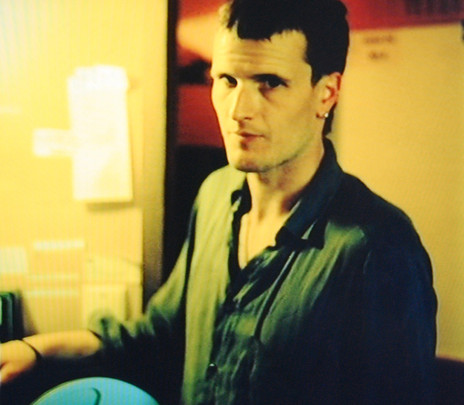
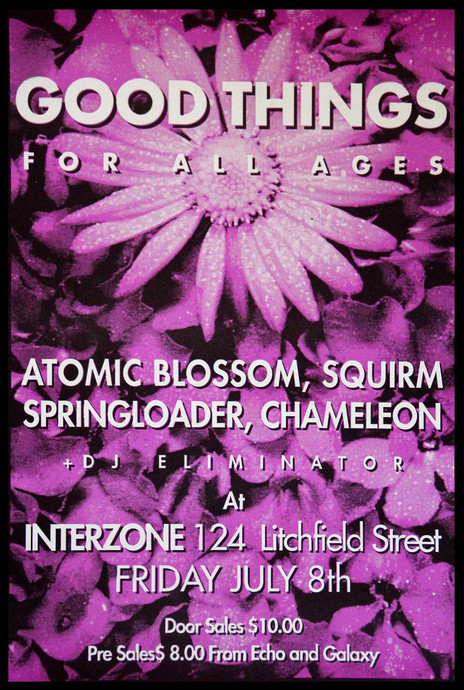
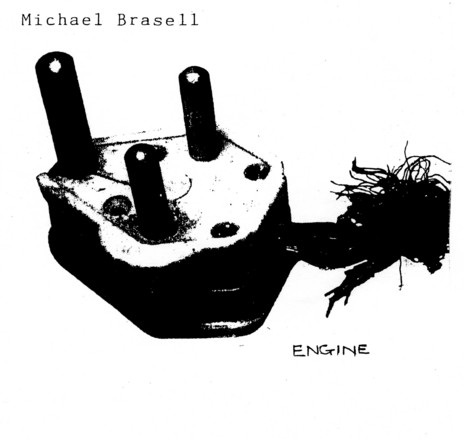
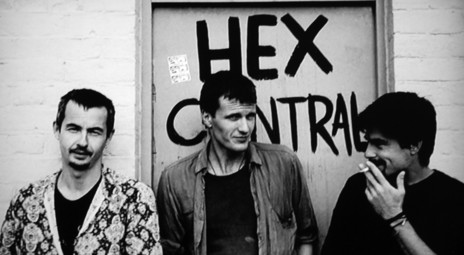
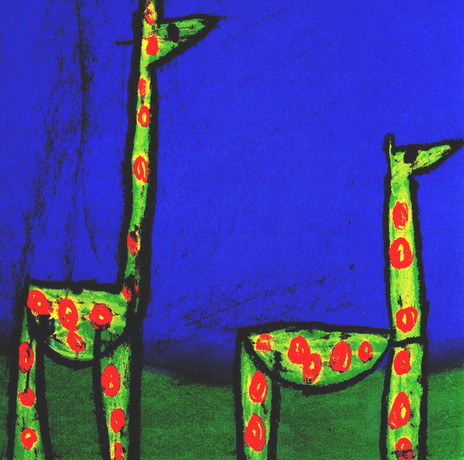
Visit our sister site
NZ On ScreenMade with funding from
NZ On Air